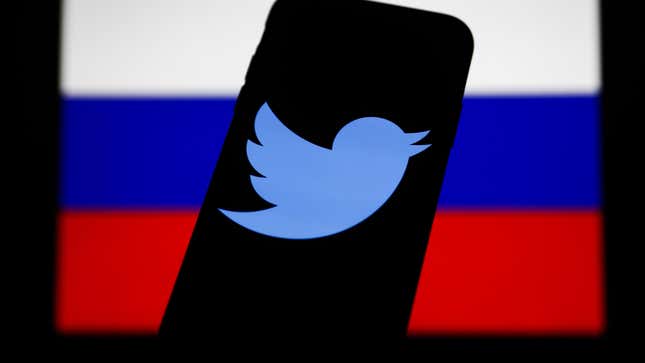
Russia has begun to ban Instagram.
On Friday, Russia opened a “criminal investigation” into Meta’s recent policy changes allowing violent threats against Russians amid the invasion of Ukraine, dubbing the company an “extremist” organization. Russia’s Prosecutor General’s Office has asked the government’s media office, Roskomnadzor, to cut off Russian access to the platform due to its “distribution of information materials containing calls to carry out violent actions against Russians, including servicemen.”
“A criminal case has been initiated ... in connection with illegal calls for murder and violence against citizens of the Russian Federation by employees of the American company Meta, which owns the social networks Facebook and Instagram,” the Russian Investigative Committee announced, according to CNBC.
Social media giants’ relaxing of their moderation polices regarding violence began last week when Sen. Lindsay Graham casually suggested on Twitter that somebody should assassinate Russian President Vladimir Putin. He wrote, “Is there a Brutus in Russia?” in reference to Roman emperor Julius Caesar’s infamous assassin.
The remarks seemed to violate Twitter’s longstanding policy about violent threats: “You may not threaten violence against an individual or a group of people. We also prohibit the glorification of violence,” reads Twitter’s 2019 dictum against bloodthirsty rhetoric. Based on this, one would have to conclude that Graham’s not-so-subtle Ides of March comment would not be considered Twitter compliant.
But, as it turns out, that’s not true. No, according to Twitter, saying someone should kill Putin is actually totally fine. In fact, you can currently get away with a whole lot more than that.
Both Twitter and Meta have shifted their content moderation policies to temporarily allow for violent threats against Russian soldiers, political figures, and military leaders. The news was originally broken Tuesday by The Daily Beast, which found that Twitter had changed its policies to allow for death threats against Russian soldiers and military personnel, as well as government officials. An internal memo to moderation employees reads:
“Based on the current safety guidelines on the Russia-Ukraine conflict, content wishing, hoping or calling for serious harm against leaders of the Russian government, military leaders, soldiers or para-military fighters will result in No Action.”
On Thursday, it was revealed that Meta had followed suit. Reuters reported that the social media giant had changed its policies so that in certain countries users of Facebook and Instagram could make violent threats against Russian soldiers and military officials, including Putin and Belarusian President Alexander Lukashenko. The changes apply to a number of countries, including Ukraine, Russia, and Poland, among others. Reuters apparently reviewed internal emails that confirmed the changes.
That’s not the only bizarre moderation shift Meta has made lately, vis a vis Ukraine. A few weeks ago, The Intercept reported that the company had decided to temporarily allow praise of Ukraine’s Azov battalion, a literal Nazi paramilitary organization that is rumored to have been trained by the CIA and other Western forces (the CIA has denied it...). Due to its defense of Ukraine, some have tried to refurbish the credibility of Azov despite members’ avowed nazi beliefs.
Russia, naturally, doesn’t seem to love these policy changes. As a result, the country has now initiated a ban on Instagram.
When reached for comment about moderation changes, a Meta spokesperson provided us with the following statement.
“In light of the ongoing invasion of Ukraine, we made a temporary exception for those affected by war, to express sentiments toward invading armed forces such as ‘death to the Russian invaders’. These are temporary measures designed to preserve voice and expression for people who are facing invasion. As always, we are prohibiting calls for violence against Russians outside of the narrow context of the current invasion.”
At a time when it really seems wise to turn down the temperature on the geopolitical firestorm that is Ukraine, social media companies are apparently headed in the other direction.
We also reached out to Twitter for comment on these developments but haven’t heard back. We will update this story if they respond.